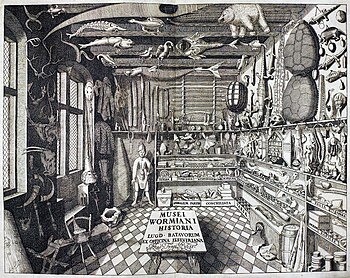The way of Weirdness is just to pull things out of your imagination. The better and more informed your imagination, the more wondrous things appear. Think of a Renaissance wunderkammer ....
 |
| The museum of Olaus Wormius |
 Lord Dunsany's jewel-like story vignettes ...
Lord Dunsany's jewel-like story vignettes ...Each one perfect in its self-containment, the artistically described miniatures of Weirdness are best described from the surface going inwards... beginning with an impression, a synaesthesia, an emotional feeling, a sensory package that only then takes form by association.
To take an example: the image of rainbow colors on a black background. What does that bring to mind?
Gems against black velvet
Bright eyes, multicolored, curious in the night
Small bright-eyed skittering creatures, hoarders of gems
Halls of black volcanic rock, the creatures barely visible unless they open their brilliant eyes
Smoke thick in the air, black and billowing, multicolored sparks of magic, fireflies
Bright cascade of tones, hurtling in the void
The Rainbow of Midnight, unnatural, a black-skinned queen resplendent in gleaming enamel and polished stones
Darkness and serenity, then sudden bedazzlement, a brittle, tinkling surprise quickly enough gone
We have here the set design and cast for a whole area in an adventure; its appearance, creatures, ruler, hazards, inconveniences and treasures. Self-contained, without deeper meaning, the variety can be sustained for one session or two before boredom sets in and we're off to the next.
The trouble with this method? The same as with random generation, but on a larger scale. Random generation gives you a seeming variety that eventually resolves into a gray mud, like an array of randomly colored single pixels. Whimsical sensory environment generation gives you bigger pixels - about the size of mosaic tiles - but with enough time and distance the variety here, too, resolves into patternless gray.
We need a way to arrange the pixels, to pick meaning out of the random impressions. This is the deeper meaning of Resonance, and the method of the fantastic I'll explore next.


One thing to keep in mind is the serial nature of adventure gaming. I think what you are talking about is keeping the fantasy fresh over a long period of time.
ReplyDeleteYet many of the influences on gaming are self contained and finite.
Lovecraft never intended to have a grand unified theory of the mythos.
How much continuity is actually in the Conan stories?
There are only four Lord of the Rings books and three Star Wars movies. (Ha, made you read that one again, eh?)
The Watchmen comic book had twelve issues. I don't want to read prequels or spin offs.
Anyway, where was I going..?
Serialized media that has been around awhile gets stale and repetitive eventually.
SpiderMan is fighting Dr.Octopus -again-.
The crew from Star Trek are fighting the Borg -again-.
James Bond is boffing the femme fatale -again-.
And so it seems to go with a "typical" rpg campaign:
1. Normal world.
2. Mystery introduced.
3. Cross the threshold of wonder.
4. ???
5. Return/Repeat.
Like a comic or TV show. The story just keeps going with the monster or villain of the week.
But wouldn't it make a difference if you told the players that you were only playing the game for X number of sessions?
Maybe even a one shot, like an episode of the Twilight Zone where the world could be melted by the sun for all they know.
Then you would have this little frame of time to showcase the weirdness you have devised without having to drag it out and beat it from every angle. It would just allow everyone to run with off the wall ideas.
Um, I hope that made sense. Maybe it will have some relevance with what your going to discuss next post.
@Nemo: That's a great point ... not exactly the one I was going to make. Sometimes an experience is just that, one experience, and trying to prolong it sours it. But economic forces in "The industry" ensure that most ideas are run into the ground. I think more games have to look toward the limited run, the "how did we do?" at the end.
ReplyDelete